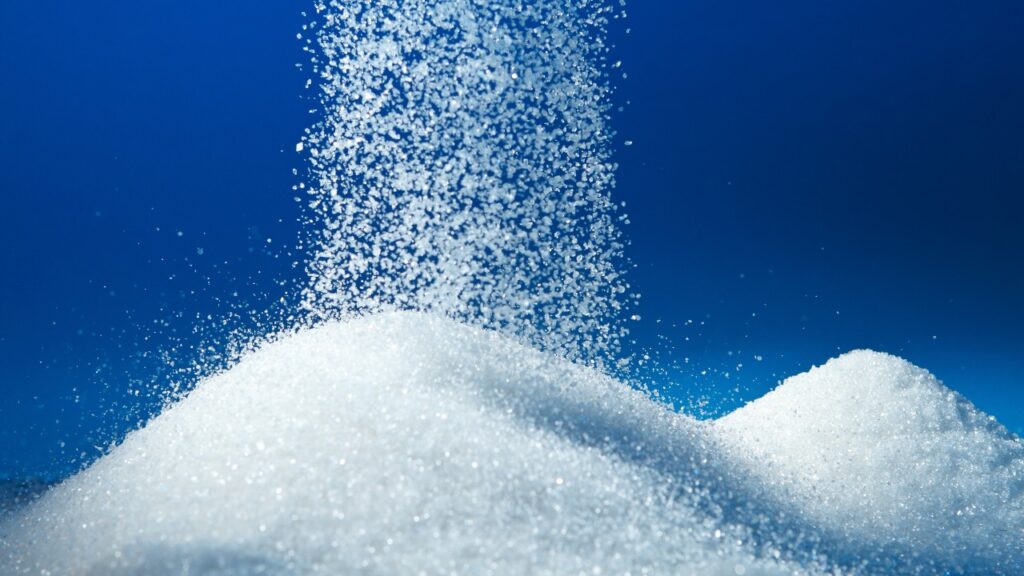Sugar price-fixing lawsuit: Who’s affected?

Consumers say big companies are engaging in price fixing to keep you paying too much for granulated sugar.
Whatever an individual paid for the bag of granulated sugar in their pantry, it’s too much, say consumers accusing American sugar companies of price fixing.
The companies have been caught before, and consumers say they are still at it.
“The sugar industry, which a handful of industry giants have long controlled, has faced antitrust scrutiny for decades,” according to the Star Tribune in Minnesota, a leading state for sugar manufacturing. “A Department of Justice consent decree in 1978 banned sugar companies from communicating about future prices or coordinating on sugar sales.”
It is alleged, though, that sugar companies are engaged in additional antitrust violations.
Do you qualify?
If you bought granulated sugar for private use, not for resale, between January 2019 and March 2024, and live in one of the following states, you may qualify to participate in a class action lawsuit accusing sugar companies of conspiracy to fix prices: Alabama, Arizona, California, Colorado, Connecticut, the District of Columbia, Florida, Hawaii, Illinois, Iowa, Kansas, Maine, Maryland, Michigan, Minnesota, Mississippi, Nebraska, Nevada, New Hampshire, New Mexico, New York, North Carolina, North Dakota, Oregon, Rhode Island, South Dakota, Tennessee, Utah or Vermont.
Please fill out the form on this page for more information.
A history of deceit
As far back as 1891, American sugar companies have been accused of price fixing. Sugar was one of the first industries tried under the Sherman Antitrust Act, passed by Congress in 1890. The underpinning of American capitalism and a powerful protector of the economy, the act prevents the formation of monopolies or any restrictions on interstate commerce and criminalizes conspiracies to fix prices.
The U.S. economy is a free market based on supply and demand. When a limited amount of something (supply) is available and many people want to buy it (demand), the price goes up. To grab a share of the market, manufacturers and retailers should compete to keep prices as low as they can to make their products sell better.
Accusers say that is not what’s happening in the sugar industry.
The New York Times has written that the United States makes about 9 million tons of sugar annually, ranking it sixth in global production. The United States sugar industry receives as much as $4 billion in annual subsidies in the form of price supports, guaranteed crop loans, tariffs and regulated imports of foreign sugar, which by some estimates is about half the price per pound of domestic sugar. Louisiana’s sugar-cane industry is by itself worth $3 billion.
Americans love sugar
Sugar was called “white gold” in the 18th century. The description still fits.
The amount of sugar consumed by Americans in all its forms adds up to 100 pounds per person a year. That’s the equivalent of 25 4-pound bags (the 5-pound bag shrank a decade ago). Sugar is added in many forms to other products, even to things we consider healthier than candy: peanut butter, canned soups, sports drinks, instant oatmeal, sauces and salad dressings, yogurt, animal feed and pharmaceuticals — the prices of which go up if sugar prices are inflated.
Granulated sugar, also called white or table sugar, is the little tiny crystals consumers put in coffee and just about everything else. It comes from two sources: sugar cane and sugar beets.
Businesses are filing lawsuits to protest sugar prices, but as consumers of granulated sugar, individuals have a separate interest worth pursuing.
What the antitrust lawsuit alleges
A handful of American companies have a lock on the granulated sugar market in the U.S., using such brand names as:
- Domino
- Crystal
- C&H
- Florida Crystals
- Pioneer
- Big Chief
- And others
According to consumers and their lawyers, sugar companies have a simple way of conspiring to set prices, forcing consumers to pay more. A researcher for a company called Commodity Information Inc., calls the big sugar producers and asks them for detailed, normally competitively sensitive information about prices, prospective prices, capacity, sales volume and demand. Without hesitation, it would seem, the companies give the researchers straight answers, which are then made available to each other, but not to the public.
This gives so-called “competitors” the opportunity to settle on prices and other factors so they don’t undercut each other.
Sugar companies are also accused of other methods of conspiracy, including exchanging pricing information by talking to each other at conferences and other events.
The lawsuit alleges consumers in certain states were harmed by paying more for granulated sugar as a result of the conspiracy. The lawsuit is seeking to recover these overcharges paid by the consumers.
Join a price-fixing investigation lawsuit
If you bought granulated sugar for personal use between January 2019 and March 2024, you may qualify to participate in an investigation leading to a lawsuit seeking compensation and the end of an illegal practice that may be causing sugar prices to skyrocket.
Please fill out the form on this page to see if you qualify for a FREE case evaluation.
GET HELP – IT’S FREE
Join a price-fixing investigation lawsuit
If you qualify, an attorney will contact you to discuss the details of your potential case at no charge to you.
After you fill out the form, an attorney(s) or their agent(s) may contact you to discuss your legal rights.
ATTORNEY ADVERTISING
The choice of a lawyer is an important decision and should not be based solely on advertisements.
PAID ATTORNEY ADVERTISEMENT: THIS WEB PAGE IS AN ADVERTISEMENT AND THE PARTICIPATING ATTORNEY(S) ARE INCLUDED BECAUSE THEY PAY AN ADVERTISING FEE. Top Class Actions is not a law firm, lawyer referral service, or prepaid legal services plan. We do not endorse or recommend any third-party claims processing company, lawyer, or law firm who participates in the network. We do not make any representation, and have not made any judgment, as to the qualifications, expertise, or credentials of any participating lawyer or processing group. No representation is made that the quality of the legal services or claims processing to be performed is greater than the quality of legal services or claims processing performed by other lawyers or claims processing group. The information contained herein is not legal advice. Any information you submit to Top Class Actions does not create an attorney-client relationship and may not be protected by attorney-client privilege because Top Class Actions is not a law firm. Instead, your information will be forwarded to an attorney(s) or their agent(s) or a claims processing firm for the purpose of a confidential review and potential representation if you qualify. You will only be contacted by an attorney(s) or their agent(s) in response to your inquiry if your initial information appears to qualify you for representation. If you are not contacted by an attorney(s) or their agent(s) within one week, you should consult another firm since all legal claims are subject to filing deadlines. All photos on this website are stock art and do not depict clients.












